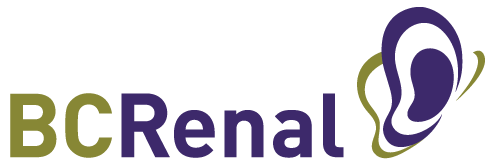I have always been interested in kidney disease, but it was during my Nephrology training that I truly understood the benefits of home therapies for patients with CKD and for the healthcare system as a whole. Recognizing how important it is to expand and improve home therapies locally, I was inspired to apply for this Fellowship.
During my time at UBC, I worked at Vancouver General Hospital, St. Paul’s Hospital, and Surrey Memorial Hospital. I focused particularly on learning about the structural aspects of PD programs—from clinic organization and patient follow-up to teamwork and workload distribution. One invaluable part of the training was hands-on experience in peritoneal dialysis catheter insertion, a skill that later proved essential for establishing an acute PD program. In addition to gaining clinical experience and confidence in managing large PD populations, I also learned about Home Hemodialysis—something that currently does not exist in Argentina. I was incredibly fortunate to work alongside a remarkable group of people from all across BC Renal, who were not only excellent teachers and mentors but also became dear friends.
With the goal of developing local PD programs, I returned to Argentina, where I was invited to join the Hospital Alemán de Buenos Aires, a tertiary institution located in the heart of the city. The socioeconomic situation here is quite different from Canada’s, but we share similar medical principles. The challenge remains how to increase PD uptake nationwide, an issue that requires addressing multiple factors.
Together with the hospital authorities, we believed that introducing acute PD as a valid form of continuous renal replacement therapy could become a valuable tool to help critically ill patients and, at the same time, foster the development of chronic programs. In line with this vision, I was asked to lead the creation of the first acute PD program in a hospital that, until then, had no chronic PD services available. The process involved an intensive 18-month multidisciplinary team effort dedicated to laying the foundations for a practice that was largely unfamiliar within our healthcare system. I drew upon every lesson from the Fellowship to overcome numerous obstacles, while maintaining constant communication with my colleagues and friends at UBC, who continued to support me throughout.
In early September 2025, we successfully launched the program and treated our first patient—an event that represented a true paradigm shift for our health system, as it marked the first time a local health insurance (obra social) covered the procedure.
There is an ongoing cultural shift regarding PD use in Argentina, and other institutions are now eager to implement acute PD as well. From our experience, initiating an acute PD program has naturally led to increased interest in developing a chronic PD program. This, combined with the fact that hospitals can now manage urgent dialysis starts and other forms of acute treatment, suggests a positive impact on the expansion of the modality. Looking ahead, we aim to strengthen and broaden the use of acute PD, generating solid evidence to encourage other countries to adopt this therapy as a valid form of acute dialysis and to enhance PD uptake overall. We are currently working on establishing our first chronic PD program at the hospital and hope to remain in close contact with our colleagues and mentors in Vancouver for guidance and collaboration.
Dr. Lucas Petraglia
Home Therapies Fellowship
January - December 2023

